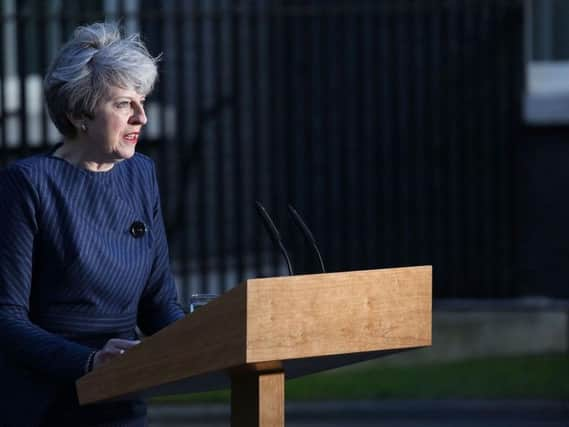James Reed: Theresa May's reputation in tatters after election gamble fails


The Prime Minister ditched repeated pledges there would be no early poll and instead called a snap General Election, insisting the approaching Brexit talks made it necessary for her to seek a fresh mandate from the electorate.
In truth, with Labour promising not to block Brexit, Mrs May could have comfortably chosen to open talks with Brussels in the knowledge she would not face an election until 2020.
Advertisement
Hide AdAdvertisement
Hide AdBut the possibility of securing her own five-year-term and rows of loyal new MPs on her backbenches proved just too tempting.
Conservative activists dared to believe the apparently shambolic state of Labour would be enough to deliver the party a three-figure majority.
But as results were announced overnight it became clear that the party was fighting just to get back into government at all.
The election results defied not only polls giving the Conservatives a clear lead but the party’s own intelligence-gathering which continued to point to a healthy majority in the final days of the campaign.
Advertisement
Hide AdAdvertisement
Hide AdThe gulf in popularity ratings between Mrs May and Labour leader Jeremy Corbyn inevitably led the Conservatives to try to make the election campaign a choice between the two.
However, presenting Mrs May as an infallible leader risked amplifying the impact of any campaign mis-step.
And so it proved when the party’s social care policy was quickly dubbed the dementia tax, Conservative candidates reported a negative backlash and within days the Prime Minister was performing an ungainly u-turn.
Finessing such a change would have been difficult for any campaign, but proved particularly hard to spin for one which had spent weeks stressing the “strong and stable leadership” of the party leader.
Advertisement
Hide AdAdvertisement
Hide AdCandidates who privately thought they were cruising to victory suddenly found themselves back in battles for their seats.
The Conservatives’ campaign strategy also invited voters to take a closer look at Mrs May.
Although Home Secretary for six years prior to entering Downing Street, she remained something of an unknown quantity to those beyond keen politics-watchers.
Going to the polls after just nine months as Prime Minister had given the voting public little opportunity to get to know her.
Advertisement
Hide AdAdvertisement
Hide AdAnd she gave little away during the campaign, preferring instead to focus on consistent repetition of the party’s major campaign slogans and her personal promise of offer strong and stable leadership.
Her leadership now looks far from either.